International
Argentine Jorge Fernández Díaz wins the 81st Nadal Award with ‘El secreto de Marcial’
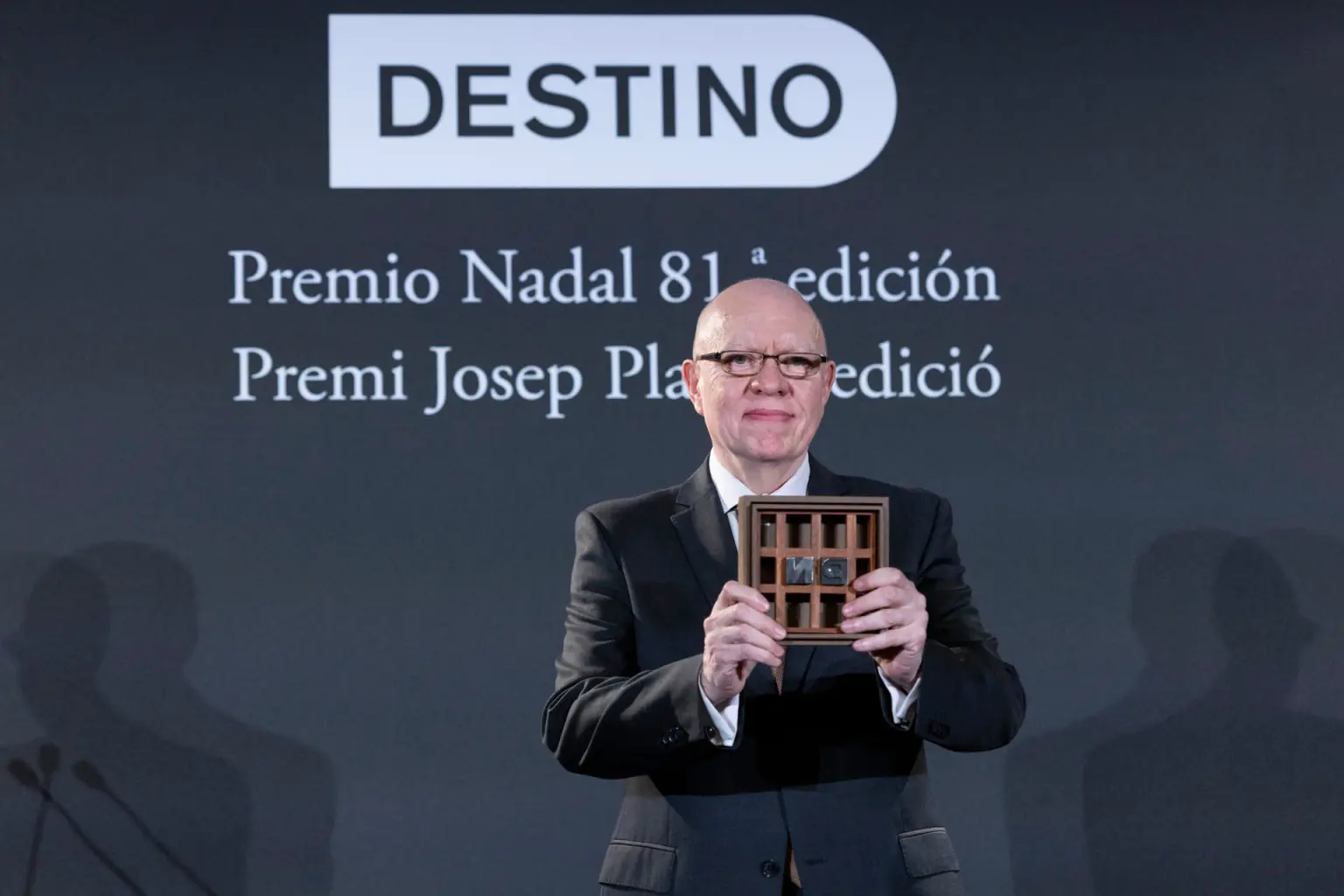
The Argentine writer and journalist Jorge Fernández Díaz has won the 81st edition of the Nadal Novel Award, endowed with 30,000 euros, with his autobiographical work ‘El secreto de Marcial’, which the winner of the award, Editorial Destino, will publish on February 5.
In the proclamation ceremony, Fernández Díaz, who had presented himself to the award under the pseudonym of Daniel Ocampo, has won the Nadal with a novel that had the provisional title of ‘Marcial’.
Previously, in the same evening, the winner of the 57th edition of the Josep Pla Prize for Catalan Prose was announced, endowed with 10,000 euros, which has fallen to the scientific popularizer and educator David Bueno, hidden behind the pseudonym of ‘Carro de Foc’, for ‘L’art de ser humans’, an essay that proposes a fascinating journey through the arts, neuroscience and education, which he had presented with the fictional title ‘Quan l’esser humà despierta’.
After the jury’s verdict was made public, Fernández Díaz, whose name coincidence with the former PP Minister of the Interior has not prevented any jokes, recalled that Nadal “is one of the world’s great prizes.”
“I am the son of two Asturians who emigrated to Argentina in the midst of hunger and fear of the post-war period after the Spanish Civil War and who built an epic emigrant in an immense Spanish community, forgotten and today in the process of extinction,” confessed the Argentine journalist, who wants to dedicate the winning novel precisely to “that forgotten community in which I grew up.”
A few years ago, in 2001, Fernández Díaz wrote the successful novel ‘Mamá’, which he dedicated to his mother Carmina, an Asturian who was sent to Argentina at the age of 15 to flee poverty in the post-war period of Francoism.
The author now focuses on ‘El secreto de Marcial’ on “the most mysterious person”, his father, Marcial Fernández, who in ‘Mamá’ was “a secondary character, a chapter, because for some reason he was a hermetic person, who was present in an exceptional way.”
For the winner of the dean of the Hispanic literary awards, “there is only one mother, but every father is an enigma” and, for that reason, he decided to solve it: “My father did not have the tools to communicate with me, and his only way, the only sentimental education he bequeathed to me was to watch together some of the classics of old Hollywood, some films that I have later revisited.”
Since Marcial Fernández died in 2005, his father became “a kind of literary ghost” who challenged him to try to write about him.
“My father gave me for lost when he found out that I wanted to be a writer and it is an ironic turn that my father returns to Spain in the form of a novel and tonight,” he said excitedly.
In Fernández Díaz’s opinion, his father was the archetype of “those tough men not trained for the paternal-child relationship, a facet that he left exclusively in the hands of the mother.”
Although he tells the life of Marcial, the writer has also wanted to narrate the life of the Spanish community in Argentina, which “had great importance at the time and is on the verge of extinction with some of its members already in the ages.”
The novel, the author points out, takes place in a different Buenos Aires from that of Marcial, where a family investigation takes place looking for the secrets of this enigmatic man, a research that takes the reader to Asturias.
In the same evening, previously, the 57th Josep Pla Prize for Catalan prose was presented to the biologist, researcher and science popularizer David Bueno, for his work ‘L’art de ser humans’.
After knowing the verdict, Bueno said that “this award is not the end of anything” and about the award-winning work he commented that it is “a fascinating journey through the arts, neuroscience and education, which redefine the way we perceive the world and ourselves.”
In the usual evening that opens the literary course of the year every January 6 in Barcelona, which this year has remembered the centenary of Ana María Matute, personalities from the cultural, political and economic world have attended, headed by the president of the Generalitat, Salvador Illa, and the Minister of Culture, Ernest Urtasun.
International
Colombia: Search continues for missing limb of italian scientist found dismembered
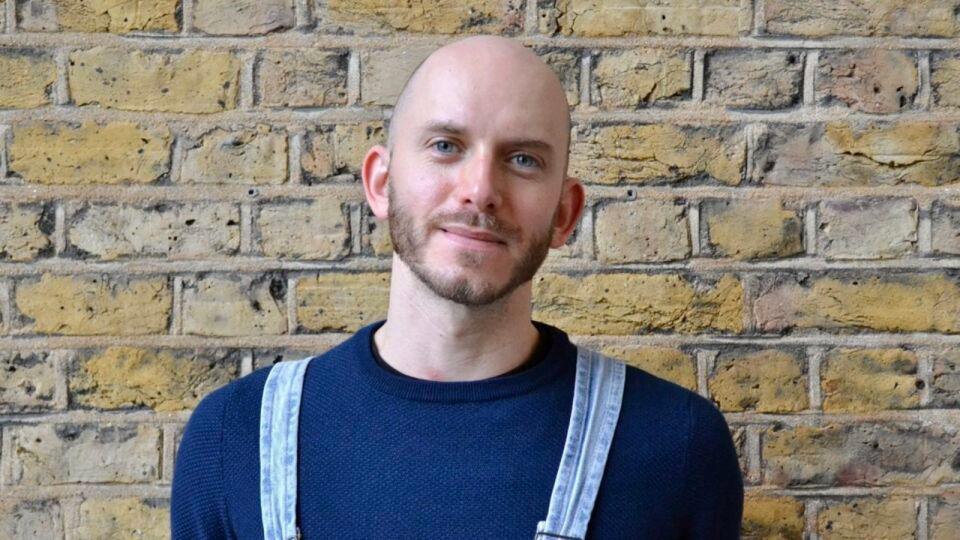
Rescue teams and Colombian authorities continued their search on Tuesday for the missing left leg of Italian biologist Alessandro Coatti, whose dismembered body was found in the Caribbean city of Santa Marta.
Coatti, 42, was a molecular biologist who had been traveling through South America after working for eight years at the Royal Society of Biology (RSB) in London.
He had been staying in a hotel in Santa Marta since April 3 and was later reported missing. His dismembered body began to be discovered on April 6, when parts were found inside a suitcase abandoned near a football stadium in an area known as Bureche.
“We’re conducting the search along the riverbanks and in the water to identify possible spots where, due to the river’s current, the missing left leg might be located,” Karlotz Omaña García, director of the Magdalena Civil Defense, told The Associated Press. Despite covering a 500-meter radius, the limb was not found.
Authorities have not named any suspects or shared possible motives. A reward of more than $11,000 has been offered for information leading to those responsible for the foreign scientist’s murder.
Police continue to reconstruct Coatti’s final movements. According to Colonel Jaime Ríos, head of the Santa Marta Metropolitan Police, the Italian biologist arrived in Colombia in January and had visited several locations, including Medellín, before traveling to Santa Marta.
Security footage shows Coatti was in downtown Santa Marta the night before his body was found, the colonel added.
Santa Marta, a popular Caribbean tourist destination, is known for its clear beaches. Police believe Coatti may also have visited Tayrona Park, a protected coastal area located about 34 kilometers (21 miles) from the city center.
International
MPV Denounces Electoral Blockade as Secretary-General is Disqualified for May Elections
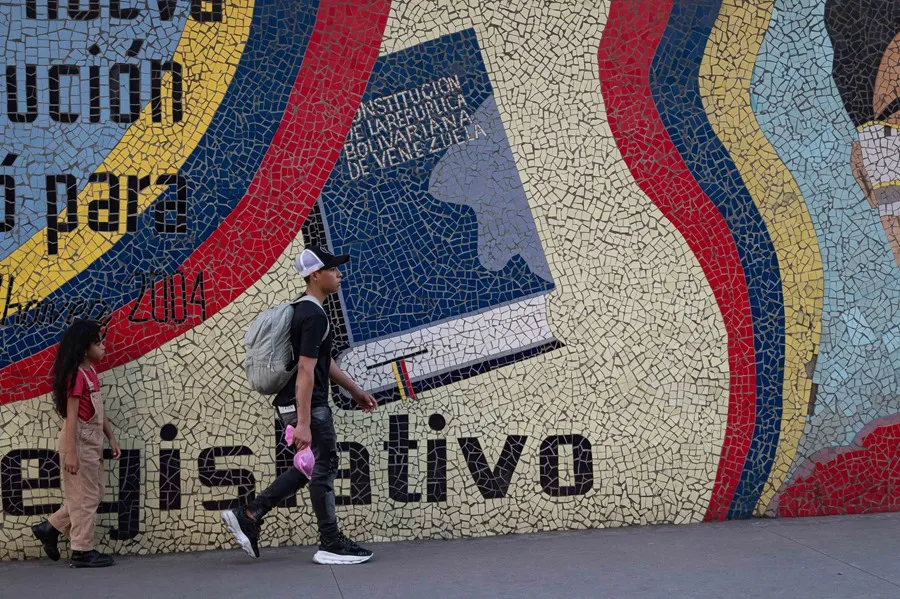
The anti-Chavista party Movement for Venezuela (MPV) denounced on Monday that it was “prevented” from submitting its candidates for the regional and legislative elections on May 25, elections rejected by opposition leaders Edmundo González Urrutia and María Corina Machado.
“MPV, being an active and recognized party in the National Electoral Council (CNE), was prevented from submitting candidates for the current electoral process,” stated the political group through a communiqué on X.
Additionally, the group denounced that its Secretary-General, Simón Calzadilla, was “suddenly disqualified,” as the opposition leader warned last Friday. He also explained that he attempted to access the CNE’s automated candidate submission system but, as he added, the portal showed that he was not authorized to create a user and submit the MPV candidates.
For the party, its “strong decision” to participate in the May elections “highlighted the true nature of this electoral process,” which it described as “extremely flawed.”
International
Maduro Plans Major Workers’ March on May 1st to Defend Venezuela’s Freedom
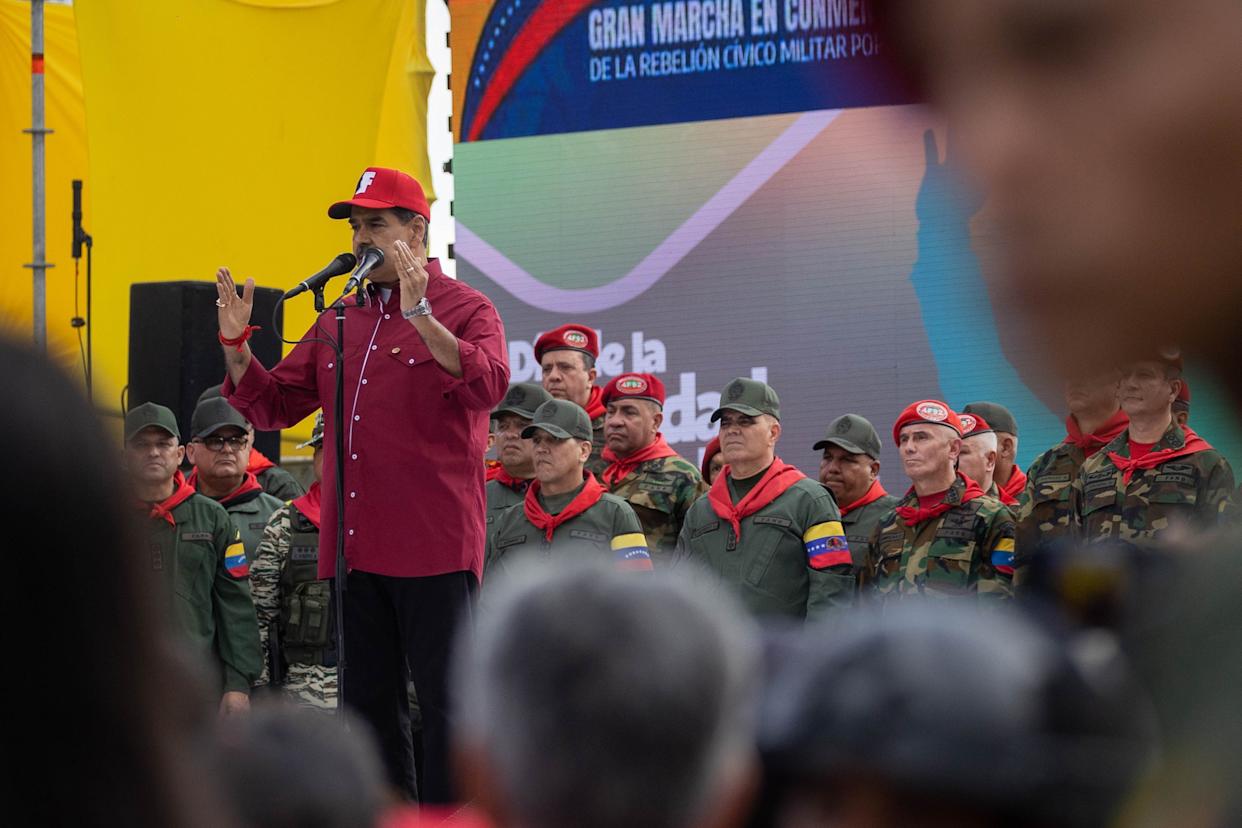
Nicolás Maduro, who swore in for a third term in January following his controversial re-election, called on Monday for the “working class” and the “armed people” to gather for a concentration on May 1st for peace, as part of the celebration of International Workers’ Day.
“Let’s have a powerful march of the working class, the combat bodies, and the Bolivarian National Militia in all the cities of the country, from end to end, working class and armed people in the streets shouting for peace,” said the chavista leader in a broadcast on the state channel Venezolana de Televisión (VTV), surrounded by military authorities.
He also stated that Venezuela is more armed than “ever” to “defend the sacred dream of a free homeland, the sacred soil of a heroic land, Venezuela.”
Maduro called on all military personnel to “stay in shape” with a “deployment capacity” and also to have “a very clear view of the entire national territory.”
-

 International5 days ago
International5 days agoDominican Republic mourns over 200 dead in Jet Set nightclub collapse
-
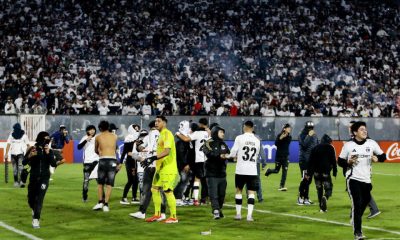
 International5 days ago
International5 days agoTwo fans killed in gate collapse outside Chile’s Estadio Monumental
-
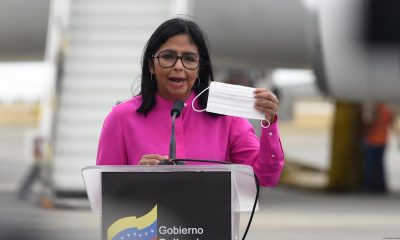
 International3 days ago
International3 days agoVenezuela accuses Guyana of “warlike intentions” after UK defense deal
-
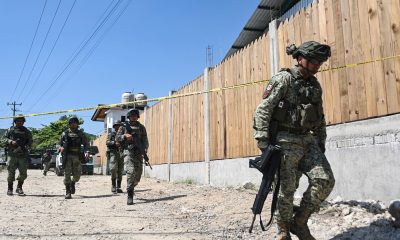
 International4 days ago
International4 days agoTrump Authorizes Military to Take Control of Federal Land Along U.S.-Mexico Border
-

 Central America4 days ago
Central America4 days agoSpanish Ex-Congresswoman Calls for ‘Bukele-Style’ Security Policies in Europe
-

 International3 days ago
International3 days agoNightclub Collapse in Dominican Republic Claims 226 Lives
-

 International5 days ago
International5 days agoVenezuelan oil shipments resume after tariff-induced delays
-
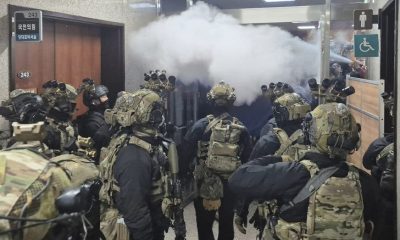
 International5 days ago
International5 days agoConstitutional Court Removes Yoon: Lee Jae-myung’s Rise Sparks Warnings of a Radical Shift
-

 Central America1 day ago
Central America1 day agoHonduran Police Offer $135K for Tips Leading to the Arrest of Romeo Vásquez
-

 International1 day ago
International1 day agoMaduro Plans Major Workers’ March on May 1st to Defend Venezuela’s Freedom
-

 International1 day ago
International1 day agoMPV Denounces Electoral Blockade as Secretary-General is Disqualified for May Elections
-

 Central America10 hours ago
Central America10 hours agoPetro questions Ecuador’s vote, cites reports of military control and arrests
-

 International10 hours ago
International10 hours agoColombia: Search continues for missing limb of italian scientist found dismembered















